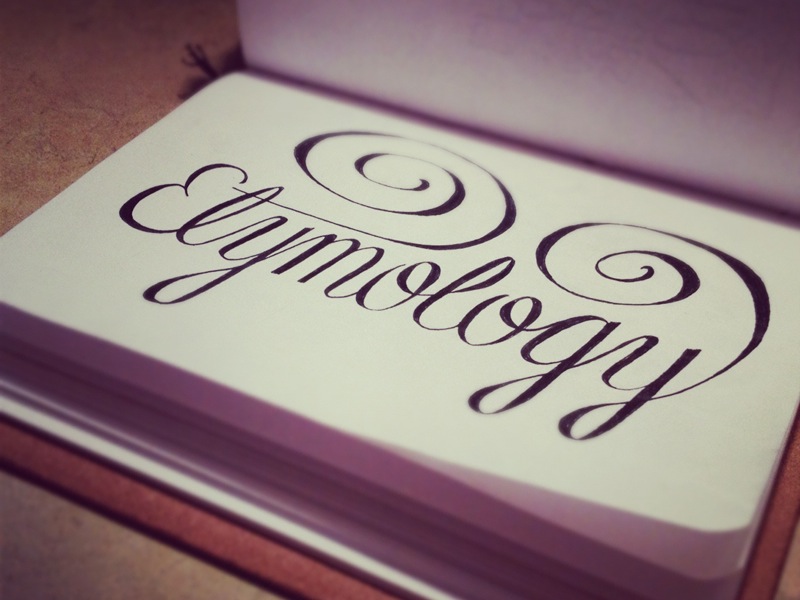“Tales are psychologically privileged within the human thoughts.” Daniel Willingham
The thoughts thinks and remembers in tales. It’s a part of the structure of human reminiscence and our human expertise. Given it’s so rooted in how we expect, storytelling proves very important to studying and is helpful in all types of the way within the classroom.
In relation to instructing vocabulary, or just instructing topic data, etymology – the research of the origins of phrases and the way they’ve modified over time – presents us a great tool for memorable studying.
We use phrases day by day, often and not using a deep understanding of their origins and modifications over time. And but, when their which means is unveiled to us, they will show memorable, curious and downright intriguing.
Listed below are a few of my favorite phrases and that what I feel exhibit an attractive etymology:
- Anthology. I’ve used this phrase for numerous years as an English trainer, however with none data of the quite beautiful etymology. ‘Anthos‘ comes from the Greek, which means ‘flower’, with ‘logia’ which means assortment (from ‘legein’ – ‘collect’). So every time we see a bunch of poems or essays, we will beautify them somewhat by remembering that phrase ‘anthology’ emerges from a bunch of flowers.
- Nightmare. A ‘mare‘, from ‘mara’ in excessive German, described an evil spirit or goblin that rode on individuals’s chest while they slept, giving them nightmares. These ugly fairy-tale-like origins seize one thing of visceral, bodily expertise of a nightmare.
- Clue. This phrase comes straight from Greek mythology and the story of Theseus and the Minotaur. Because the story goes, within the fabled labyrinth, Theseus used a ball of yarn to trace his path. A ball of yarn was referred to as a ‘clew’. Roll few many centuries and we’ve our modern-day phrase: ‘clue’.
- Fascinate: This Latin phrase is really bewitching in origin. From the Latin ‘fascinat’ – which means ‘bewitched’, and the verb ‘fascinare’, from ‘fascinum’, which means ‘spell, witchcraft’, or a phallus formed amulet to thrust back spells. There you go, fascinate is a really bewitching phrase (simply watch our for a harmful phallus!)
- Mortgage. The etymology of this phrase is unerringly correct and apt. As soon as extra Latin in origin, from ‘mortuus‘ – which means lifeless mixed (acquainted in phrases comparable to ‘mortality’) with ‘gage‘ – ‘pledge‘. The phrase then actually means “demise pledge”! As I stated, fairly apt.
- Hall. A acquainted phrase and path for academics, it has quite ironic Latin origins. It comes the Latin ‘currere’, which means ‘to run‘. Initially linked to fortifications, as a strip of land working alongside a ditch, it has extra just lately been stripped of its extra particular origins. Subsequent time we bewail working within the hall, we will recall the ironic working roots of the phrase.
- Wage. This phrase for common fee has some supposing roots linked to ‘salt’. You’ll be able to see the resemblance within the ‘sal’ prefix, with ‘wage’ coming from the Latin, which means a fee to troopers – ‘salt cash, or troopers allowance to purchase salt’. Salt was after all a lot prised in our historic previous and so its hyperlinks to finance revealed simply how important it was.
- Malapropism. This phrase is used to explain mistaken phrase use for comedian impact. It’s really an ‘eponym‘, which denotes a reputation or noun named after an individual in historical past. On this case, it’s a literary character Mrs Malaprop, from Sheridan’s eighteenth century play, ‘The Rivals‘. This narrowly beat out one other literary eponym for a similar which means – a ‘Dogberryism‘ – named after the character, Dogberry, from Shakespeare’s ‘A lot Ado About Nothing’.
- Hysteria. This phrase, used to explain a state of uncontrolled emotion, conveys a number of the patriarchal roots of our English language. It has roots rising from the Latin – ‘hystericus’ – which means ‘womb’. And so, this notably emotional insanity is attributed to ladies and never males.
- Etymology. How might we discover phrase roots and etymology with out tacking the etymology of… properly ‘etymology’? From the Greek phrases ‘etymos’, which means ‘true’, and ‘lógos’, denoting ‘phrase’ – it means then a ‘true phrase’.
And so, with somewhat digging, we will discover the roots of phrases, illuminating some memorable truths about their historical past and which means.
Although many of those phrases provide us merely the pleasure of an important story, etymology and phrase roots may be harnessed as an efficient instructing technique. I’ve written a chapter on this, with an array of methods, in my new e book, ‘Closing the Vocabulary Hole‘. It’s obtainable on Amazon HERE and at Routledge HERE.

